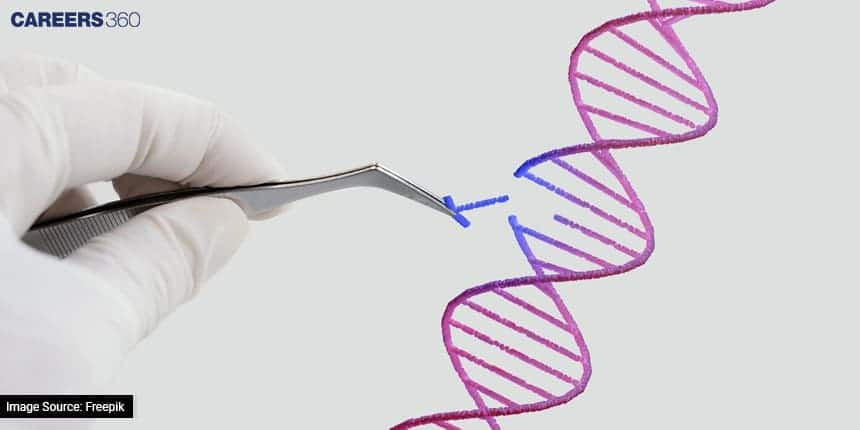Genetic Engineering, Modification And Its Real-World Applications
Genetic engineering, also known as genetic modification, involves the direct manipulation of an organism's genes using biotechnology. The ability to modify DNA has opened doors to unprecedented possibilities, revolutionising agriculture, medicine, and even addressing environmental challenges. This article aims to unravel the intricacies of genetic engineering and shed light on its diverse applications.
This Story also Contains
- Genetic Modification: An Overview
- Real-World Applications
- Ethical Considerations and Challenges

Genetic Modification: An Overview
Genetic modification primarily involves manipulating the DNA of an organism to achieve desired characteristics. The process may include inserting, deleting, or modifying specific genes, leading to the expression of desired traits. This technology has evolved significantly, allowing scientists to work with precision at the molecular level.
Techniques of Genetic Modification:
CRISPR-Cas9: This revolutionary technique enables precise editing of genes. It acts like molecular scissors, allowing scientists to cut and replace specific DNA sequences.
Gene Therapy: In the medical field, gene therapy involves introducing, deleting, or replacing genes to treat or prevent diseases.
Recombinant DNA Technology: This classic technique involves combining DNA from different sources, creating novel genetic combinations.
Real-World Applications
Agriculture: Enhancing Crop Traits
Disease Resistance: Genetic modification has enabled the development of crops resistant to pests and diseases, reducing the need for chemical pesticides.
Improved Nutrition: Genetically engineered crops can be designed to have enhanced nutritional content, addressing malnutrition issues worldwide.
Drought Resistance: Some genetically modified plants exhibit increased tolerance to drought conditions, contributing to sustainable agriculture.
Medicine: Revolutionising Healthcare
Gene Therapy for Genetic Disorders: Genetic engineering offers a promising avenue for treating genetic disorders by correcting or replacing faulty genes.
Insulin Production: Genetically modified bacteria and yeast are used to produce insulin, benefiting individuals with diabetes.
Cancer Treatment: Engineered viruses can target and destroy cancer cells, offering a potential breakthrough in cancer treatment.
Environmental Conservation: Bioremediation and Conservation
Bioremediation: Genetically modified microorganisms can be employed to clean up environmental pollutants, aiding in the restoration of ecosystems.
Conservation of Endangered Species: Genetic engineering can contribute to the conservation of endangered species by addressing genetic diversity and reproductive challenges.
Synthetic Biology: Creating Novel Organisms
Artificial Organisms: Genetic engineering allows the creation of organisms with synthetic DNA, paving the way for the development of bioengineered materials and fuels.
Bioenergy Production: Modified microorganisms can be designed to efficiently produce biofuels, offering a sustainable alternative to conventional energy sources.
Vaccine Development: Rapid Responses to Emerging Diseases
Speedy Vaccine Production: Genetic engineering expedites the development of vaccines, allowing rapid responses to emerging infectious diseases.
Customised Vaccines: Tailoring vaccines to specific genetic profiles becomes feasible, enhancing their effectiveness.
Ethical Considerations and Challenges
While the applications of genetic engineering are vast and promising, ethical concerns surround the manipulation of genes. Issues such as unintended consequences, environmental impact, and the potential misuse of the technology need careful consideration. Striking a balance between innovation and ethical responsibility is crucial for the responsible advancement of genetic engineering.
Genetic engineering is undeniably one of the most transformative technologies of our time. Its applications in agriculture, medicine, environmental conservation, and synthetic biology are reshaping industries and offering solutions to pressing global challenges. However, as we navigate this frontier of science, ethical considerations must guide our path to ensure that these powerful tools are used responsibly for the betterment of humanity and the planet.
